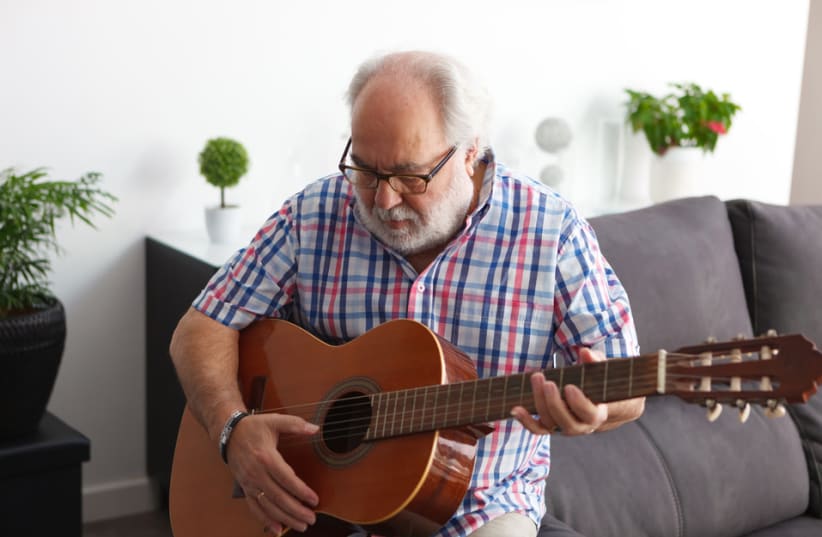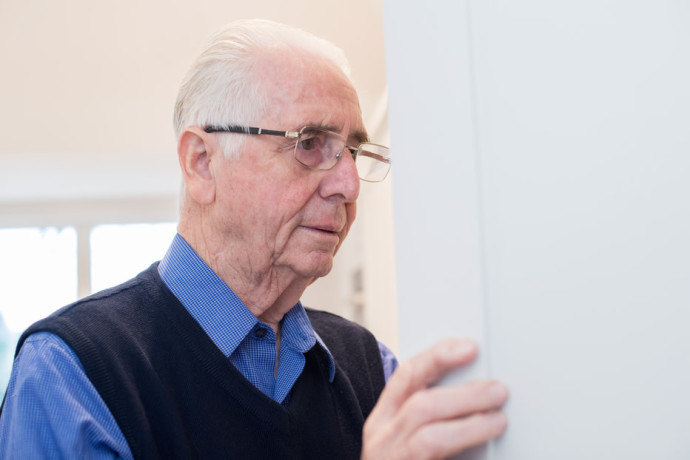Viewers around the world were thrilled to see the joint performance of 95-year-old singer Tony Bennett and Lady Gaga.
Tony Bennett has been suffering from dementia in recent years, and it was exciting to see how on stage he was once again able to recognize Lady Gaga during their performance and call her by name.
It was even more exciting to see him filled with joy and a sense of belonging. Despite the memory impairment, when the music began to play, the words returned to him and he moved to the sounds of the music and returned to being the performer he was.
The next day he did not remember the show at all.
This surprises many, but in fact it’s a very familiar phenomenon in the field of music and dementia research. Although the disease is widespread and produces extensive neurological impairment, the ability to remember music, sing and play is maintained even in the advanced stages of the disease. And, along with the music, other memories arise.
Today, there are about 150,000 dementia patients in Israel. Dementia is a collective name for degenerative brain syndrome, with Alzheimer's disease being the most common type of dementia.
It’s a long and continuous process of memory loss, decreased judgment and impaired daily functioning. Even routine activities, such as eating, leaving the house or taking a shower can provoke resistance in Alzheimer's patients, and greatly challenge the caregiver. In addition, one of the major functions impaired in patients is verbal function, and they are left speechless and unable to communicate.
This is where music comes into the picture.
The power of music
In music therapy, the therapist uses the power of music to enable contact and influence a variety of cognitive, emotional and social functions. Research in the field of music therapy in people with dementia has been gaining momentum in the last two decades. Studies indicate the ability of musical intervention to reduce restlessness and depression, elicit a response from a patient in a passive state, encourage memories and allow contact without the use of words.
Music affects people with dementia in two seemingly contradictory avenues: on the one hand, it can soothe, aids in restlessness and reduces resistance to treatment. On the other hand, it can evoke a motor response, memories and contact. Proper use of music and integration into the daily care routine can help alleviate the burden placed on primary caregivers.
Dealing with the disease poses a complex challenge to the patient and his family, which is reflected in a heavy burden on caregivers. Caring for these patients is an intensive, demanding and abrasive task, which often leads to situations of stress, depression and damage to the health and mental state of the caregivers.
Studies in the field have shown that one of the means to alleviate the burden is targeted training, which will make it easier for caregivers to deal with the daily challenges of treatment. Using music and singing as a tool in therapy allows for such an answer.
Various music training programs are being developed around the world for caregivers.
In Israel, a unique training program has been built at Amda, an organization that works for dementia patients, Alzheimer's patients and their families, which enables targeted training in the use of music as part of the treatment routine. There is no need for a professional background nor special talent. We all hear music and can sing, even if very off-key. The challenge is to turn the music into a new language that will allow communication with the patient.
Start from the quiet
Most of the time we aren’t aware of it, but our environment is full of noises: the air conditioner rumbling, trucks beeping or people talking on the television. People with cognitive decline find it more difficult to regulate these noises and also interpret them. For example, shouts from neighbors will be threatening, slamming a door will cause panic and news reports can be stressful. It’s therefore advisable to start by neutralizing ambient noise and provide as quiet an environment as possible.
Customize the music
Studies suggest that the music that burns most strongly in our memory is music from our youth, an emotionally and physiologically turbulent period in which we discover ourselves. Music plays a significant emotional role at that time as part of building our identity, so even if our tastes have improved over the years, it’s the music that energizes us, especially when there is memory impairment. It is amazing to see how people who have forgotten almost everything actually remember the lyrics and melody of songs that were sung together in a youth movement or around the campfire.
The use of music should be focused and goal-oriented: do we want to use it to calm or to arouse?
Rhythmic music encourages movement, and playing music of familiar dances from the past, such as tango for ballroom dancers or the hora for youth movement graduates, will lead to movement and dance.
If we want to calm down before bed we’ll use quiet familiar music. It’s important to use music as a preventative tool before the outbreak or difficulty, and not when the storm is at its peak. For example, you can sing to the patient a few minutes before helping him or her shower and continue singing even during it, which can significantly change the conduct, calm the person down and enable the patient to shower more easily.
Song has a strong power in itself
Songs, and especially shared songs, are associated with closeness, warmth and belonging, and are of significant value in reducing restlessness. In addition, singing can encourage a shared experience of reminiscing.
Connect together for memories
You can turn music into an event of closeness.
A shared flip through the family photo album, listening to music from that period and a shared dance will evoke memories from the past. In cases where one of the spouses suffers from dementia, distance is often created, and a joint dance becomes an experience from a company that helps to bridge the gap and allows for a meaningful shared experience.
Living with a person with Alzheimer's disease and treating it raises many challenges. Music can become a significant and useful tool in the care routine of patients, and facilitate caregivers. It is a new language that takes time to acquire, but when the words finish and communication is lost, the music remains, allows connection and brings up memories.
Dr. Ayelet Dassa is a senior lecturer in the field of music therapy at Bar-Ilan University. This article was originally published by The Jerusalem Post’s sister website, Walla!

